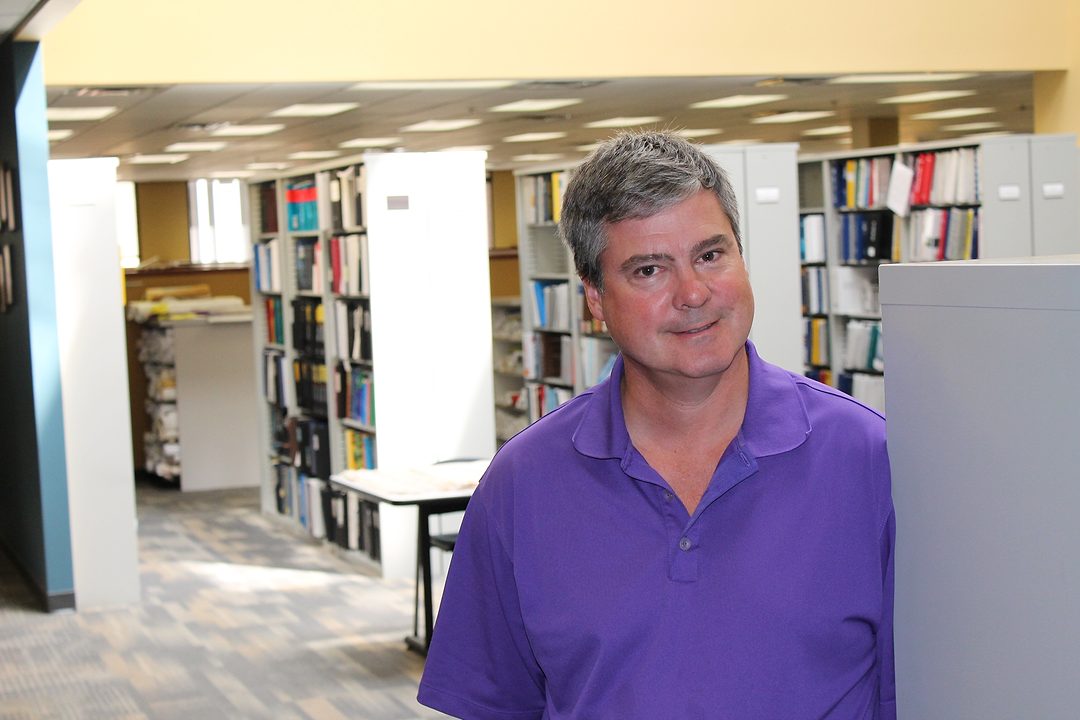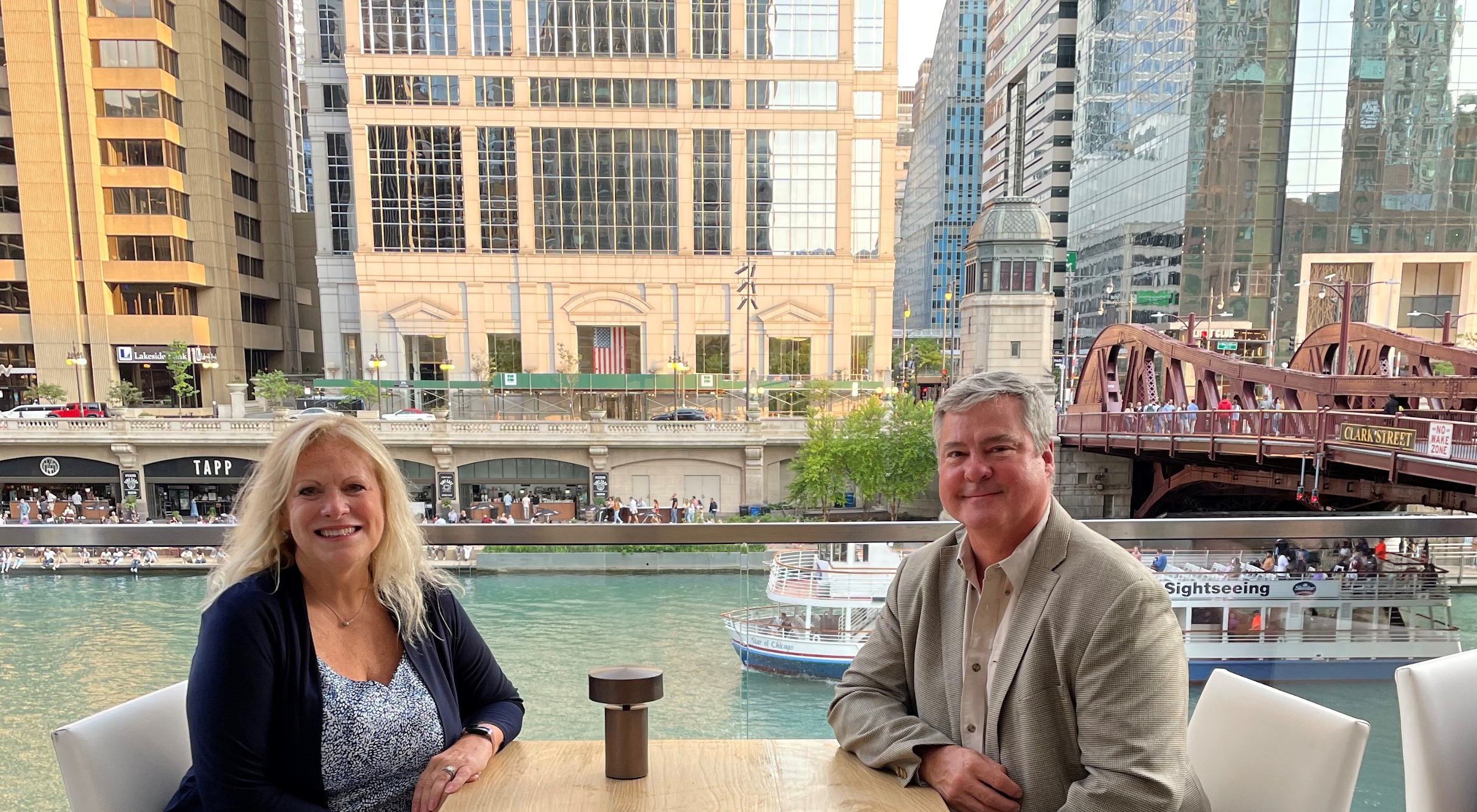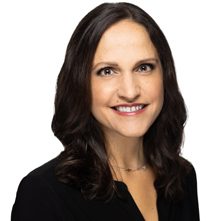2021 Plumbing Engineer of the Year: Joseph Ficek
Congratulations to Joseph Ficek, CPD, GPD, FASPE

For nearly 40 years, Joseph “Joe” Ficek has been involved in the design, specification and commissioning of plumbing and related systems, serving clients primarily in the health-care, lab/pharma and higher education sectors. He’s worked his way up the ranks from draftsman, to junior engineer, to engineer, project manager and now is an associate.
As an associate and senior plumbing designer for Grumman|Butkus Associates (GBA) in the company’s Evanston, Ill., office, he leads the firm’s plumbing, fire protection and medical/specialty gases engineering team. He is a Certified Plumbing Designer (CPD), a Fellow of the American Society of Plumbing Engineers (ASPE), and holds the ASPE’s Green Plumbing Design Certificate. He also is the former chairperson of ASPE’s CPD program.
When asked to describe himself, Ficek notes that he is an easygoing person who enjoys his work and the people he works with.
His colleagues hold him in high regard as well, noting his willingness to mentor others and share his knowledge with those in the industry.
“Joe has been an outstanding leader of our plumbing and fire protection engineering staff since the day he arrived at GBA more than 20 years ago,” says T. Chad Luning, PE, LEED AP O+M, and president of Grumman|Butkus Associates. “He is a great mentor and incredibly generous with the knowledge he has accumulated throughout his long career. Joe is unflappable while juggling multiple projects and will jump in wherever help is needed without hesitation. GBA, and GBA’s clients, are very lucky to have Joe on our team!”
Chris Sbarbaro, PE, CPD, GPD, LEED AP BD+C project manager at Grumman|Butkus, notes: “He’s energetic, he’s happy, he’s always in a good mood, and he’s knowledgeable in the field. He’s definitely the best mentor I have ever had. Joe is my direct senior in the plumbing and fire protection group and is a past president of the ASPE chapter. I just served as president of ASPE and he has Grumman Butkus been a mentor in that work as well.”
Michael Schiro, project manager at Grumman|Butkus Associates, adds: “I have been worked with Joe over the years and his knowledge of the other building trades makes my job as an electrical designer simpler. Most importantly, Joe is spending his time and effort mentoring the next generation of plumbing designers — a legacy that will benefit the plumbing and electrical disciplines for years to come.”
Meet Ficek for yourself through this exclusive interview with Plumbing Engineer.

PE: Describe your current job responsibilities. What do your day-to-day duties entail?
Joseph Ficek: My responsibilities are to oversee the production of reports and contract documents relating to plumbing, fire protection and medical gas (PFPMG). I manage the plumbers, assist in the overall designs of the projects, and do final quality control review before the projects go out the door. I take it upon myself to mentor my fellow employees so they can excel at what they do. I have a “teach a man to fish” ethic that I instill in those around me.
Beyond engineering, it is important to build relationships with your co-workers and clients. I freely share my knowledge with anyone who needs help. Developing relationships opens you up better communication as well as collaboration. Working with friends takes some of the seriousness out of projects and makes doing them a little more fun.
PE: What are your professional specializations?
JF: I specialize in the design and installation of plumbing systems within hospitals, the most important of which is Legionella control. I serve on the water management committees of several hospitals and am ASSE 12080-certified (ASSE/IAPMO/ANSI 12080. Professional Qualifications Standard for Legionella Water Safety and Management Personnel).
I take pride in being able to help our hospital clients with Legionella control and mitigation. Helping them address, mitigate and prevent the spread of Legionella and knowing that what I do could save lives is very gratifying.
PE: Are there professional organizations that have shaped your experience in the plumbing industry?
JF: I belong to several professional organizations. ASPE, the National Fire Protection Association (NFPA) and the American Society of Sanitary Engineering (ASSE). All are important avenues to stay current with codes, standards and good engineering practices. ASPE is by far the society that has helped me get to where I am today. It offered me the training and the tools that I, as a licensed plumbing engineer, need to be successful. ASPE also allowed me to develop friendships within my profession that have lasted me a lifetime.
To be an engineer, you need to stay current with what’s going on with the codes and read the code books. When new codes come out, you must take the time to learn them and find out what’s different.
I was on the committee that rewrote the Chicago plumbing code in 2000. It hadn’t been rewritten since the ‘60s, although there were minor revisions in the 1980s. We literally rewrote the entire Chicago code in a year. It was a committee of engineers, contractors and some special interest groups. We took three model codes and compared them to the Chicago code and, as a committee, decided what was best for our plumbing community.
PE: What are your top three career highlights?
JF: Selecting three highlights in a 36-year career is a bit difficult but what stands out are some of the projects I had the pleasure of working on: I designed the new Comiskey Park and the United Center in a single summer; the new children’s bed tower at Lutheran General Hospital; and the conversion of the shuttered Westlake Hospital in Melrose Park, Ill., into an alternate care facility for COVID-19 patients within three weeks.
PE: What professional challenges have you faced during the COVID-19 pandemic?
JF: Working on the Westlake Hospital alternate care facility was one of the most challenging projects of my career. The response team was able to take a shuttered hospital and convert it into a facility ready to take in up to 350 COVID-19 patients within three weeks. The project was a collaboration of the U.S. Army Corps of Engineers, Grumman/Butkus Associates mechanical engineers, Dickerson Engineering (electrical), architects, general contractors and several construction companies.
It was just a crazy time. The U.S. Army Corps of engineers was saying if this goes way south, we need to have something in place to take care of it. The good thing was it didn’t go way south, but at the beginning, in March, we didn’t know if there were going to be millions of people dying from COVID in weeks. You never know with a pandemic.

On the plumbing side of things, we replaced the domestic water heaters, upgraded the domestic water heater systems, installed Legionella control systems, upgraded toilet fixtures, upgraded medical air compressors, upgraded medical vacuum pumps, brought in new bulk oxygen storage tanks, and re-piped most of the medical gas systems to provide increased oxygen, medical vacuum and medical air supplies to the patient rooms.
There were hundreds of workers on the site working in unison toward a single goal — to get the facility ready for an influx of COVID-19 patients. It was a truly stellar effort put forth by all parties and I am proud to have been a part of it.
PE: Mentorship is an important topic for the plumbing industry right now. Can you elaborate on what you have learned as a mentor and the types of mentorship programs you’ve helped establish at Grumman|Butkus Associates?
JF: Mentoring is how I give back to the engineering community that I am proudly a part of. At Grumman/Butkus, we encourage development of all employees to be the best they can be. This benefits the employees as well as the company. We provide numerous training opportunities every year such as participation in ASPE events, sending people to seminars and a monthly open forum called “Tell Me Something I Don’t Know,” where we share knowledge of all engineering disciplines with each other.
Mentoring is a learning relationship that is constantly evolving. It is bringing forth knowledge, training and advice on how to deal with people, projects and the stresses of the engineering profession. It involves providing challenges as well as being there to help solve problems or difficult design challenges. It is encouraging mentees to develop professionally, socially and personally. It involves patience as well as stopping to listen.
It is about teaching an engineer to be self-sufficient and not be dependent upon others for solutions. Knowing where to find an answer is often more important than knowing the answer. We will never know everything but knowing where to find it or whom to ask is very important.
It is about teaching an engineer to not be afraid of asking “dumb questions” simply because they do not know the answer.
Mentoring is also about helping someone achieve life balance. Work does not make a whole person. Life is not fulfilling without social and personal interaction. Family is very important, as are friends and outside interests. Encouraging participation in work events, industry events and taking time for themselves all help round out an individual. I take pride in seeing my co-workers and other design professionals excelling because of my efforts.
Over the years, I have assisted hundreds of plumbing engineers through training and participation in ASPE at the local and national levels, and helped teach plumbing engineering courses for up-and-coming ASPE Chicago Chapter members. I also helped develop a training course for the ASPE CPD designation and presented it at local and national meetings.

PE: Who do you consider your mentor and what have learned from him/her?
JF: I would say that I have had two mentors in my life. The first is Jacques Chatain, who introduced me to plumbing engineering and encouraged me to participate in ASPE. He helped bring me into the fellowship of ASPE. The second mentor would be Dick Kviz, who taught me the finer points of plumbing engineering design as well as how to deal with contracts, clients and architects. I can still hear him asking me if I looked it up before I came to him with a question.
PE: What are you and your firm doing to get more young engineers into the industry?
JF: Grumman/Butkus Associates has an apprenticeship program that hires junior engineers who are still in college and has them work with us over the summer and holidays. It gives them insights into the business as well as all-important job experience. Many of them have come to work for us after graduation.
PE: How do you think the industry can better recruit and retain young professionals?
JF: Recruiting of young engineers should start while they are still in school. Bringing consulting engineering to students while they are learning about engineering can help give them purpose and focus toward getting into the business.
PE: To close on a more personal note, what is your life like outside of work?
JF: I am happily married with one son and one granddaughter. My interests are sailing, skiing and horseback riding. We own three horses and ride whenever we can. We also enjoy traveling with friends.
I’m also an investor in a microbrewery called Low Rez Brewery & Taproom in Chicago.

PE: Is there anything striking or notable that happened to you in 2021?
JF: I suppose the most notable change of 2021 is the return to the office. Working remotely was OK but it lacks the interpersonal aspect of working. My co-workers are like family. I missed seeing them as well as interacting with them.
I am a big fan of working from the office. This cannot be replaced, period. You can work more efficiently by walking over to a person’s desk to tell them how to do something; when you're done, you walk away. This takes two to three times that over the phone, over Skype, or whatever virtual means you’re using to communicate.
PE: Is there anything you’re looking forward to in 2022?
JF: I suppose I am not alone in this; I look forward to the end of COVID-19 so that life can return to normal.
I’m toward the end of my career, but I’m not retiring right away. I’ve got a bunch of years left and my wife and I like to travel. We have a good group of friends and we travel together. We’re of the opinion that we’re going to do it while we can afford to do it and have the physical capability to do it.
PE: What does it mean to be named the 2021 Engineer of the Year?
JF: It is an honor and a privilege. I never considered myself to be the best, I am simply someone who strives to be better at what I do.
PE: Is there anything you’d like to add?
JF: My advice to the engineers out there is to never stop learning. Stay current with industry news, new products and code updates. Don’t be afraid of asking for help. Continue to ask why something is designed in a certain way. Try looking outside the box to find solutions to unique design opportunities.
Developing relationships not only makes you friends but expands your personal database of whom you can ask for help and advice. Sharing is a two-way street. Make time to help others where and when you can and they will return the favor. Remember that you don’t need to know everything, just where to find it. That can be in a book, a friend or an associate.





